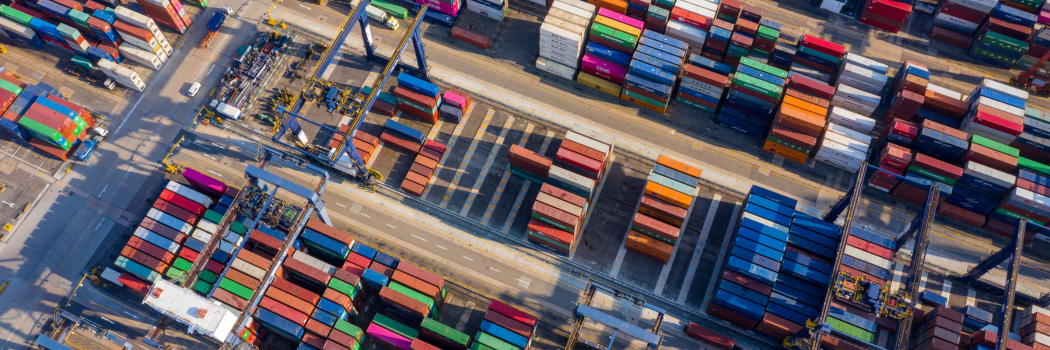Businesses must adapt to these developments for efficiency and sustainability in a competitive market. Let's explore these trends under three main sections: Market, Geopolitical, and Digital.

Trends in the Market
The three major trends regarding the forwarding market include capacity and demand volatility, industry consolidation, and sustainability as a core priority.
Freight forwarders face the challenge of managing volatility in capacity and demand. With a modest rise in global container volumes and a significant expansion of the global ocean fleet, as predicted by BIMCO, competition is intensifying. Success hinges on operational efficiency and distinctive customer service.
The trend of increasing consolidation, especially among smaller independent forwarders, reflects the survival of the fittest. Driven by challenging market conditions and the need for substantial investments, this movement is reshaping the industry's landscape.
Sustainability has emerged as a crucial aspect of business operations, especially with new reporting and disclosure requirements in the European Union. Balancing sustainability efforts with cost management is vital for businesses.

Geopolitical Trends
The disruptive forces of climate change and geopolitical unrest are significantly affecting supply chains. These challenges require agility, flexibility, and enhanced visibility in operations to navigate effectively. It's times like these which prove most beneficial to be a member of a freight forwarder network, as freight forwarders can rely on their fellow members for advice, tips, alternatives, trust, and flexibility.
With regard to climate change specifically, the increasing focus on Scope 3 emissions, involving the entire value chain, underscores the need for comprehensive sustainability strategies. Businesses are targeting these emissions as part of their broader environmental responsibility.
The Digitalization Imperative
Recognizing the importance of digitalization, traditional freight forwarders are increasingly investing in technology solutions. This shift is essential for enhancing efficiency, customer service, and crisis response. Top freight forwarder networks like 7ConNetwork provide their members with the forwarding technologies they need to digitize operations, at no extra cost or extensive time investment.

Advanced Technologies in Supply Chain Management
Technologies such as generative AI, data analytics, automation, machine learning, IoT, and blockchain are transforming supply chain management, enabling faster response times and proactive problem-solving.
- Generative AI in Operations: Generative AI is revolutionizing supply chain management by processing large data sets and analyzing complex variables, offering significant opportunities in procurement, regulatory compliance, and logistics communication. AI applications in sales, operational planning, and integrated business planning are reducing manual labor and improving decision-making processes.
- The Critical Role of Data Management and Enhanced Transparency and Visibility: Effective data management, overcoming data silos, and ensuring data quality are essential for a holistic view of the supply chain. Technologies like freight booking platforms manage data and are providing more transparency through track and trace systems as well as overviews on CO2 consumption via different route options. Having accessible real-time data allows for better and quicker decision-making and gives forwarders a jump on mitigating issues.
- Transformative Changes in Transport and Logistics: The sector is undergoing transformations, including the automation of warehouses and ports and the use of autonomous vehicles. The focus on electrification and automation, with AI and IoT, is enhancing efficiency and sustainability.
Conclusion
In 2024, freight forwarders face a dynamic period with a strong emphasis on technological integration, sustainability, and adapting to market and environmental challenges. Embracing these trends and investing in the right strategies and technologies will ensure resilience and continued success in a rapidly evolving global market. Join 7ConNetwork for free today to get assistance with building your strategy around these trends and jumpstart your digitization efforts.